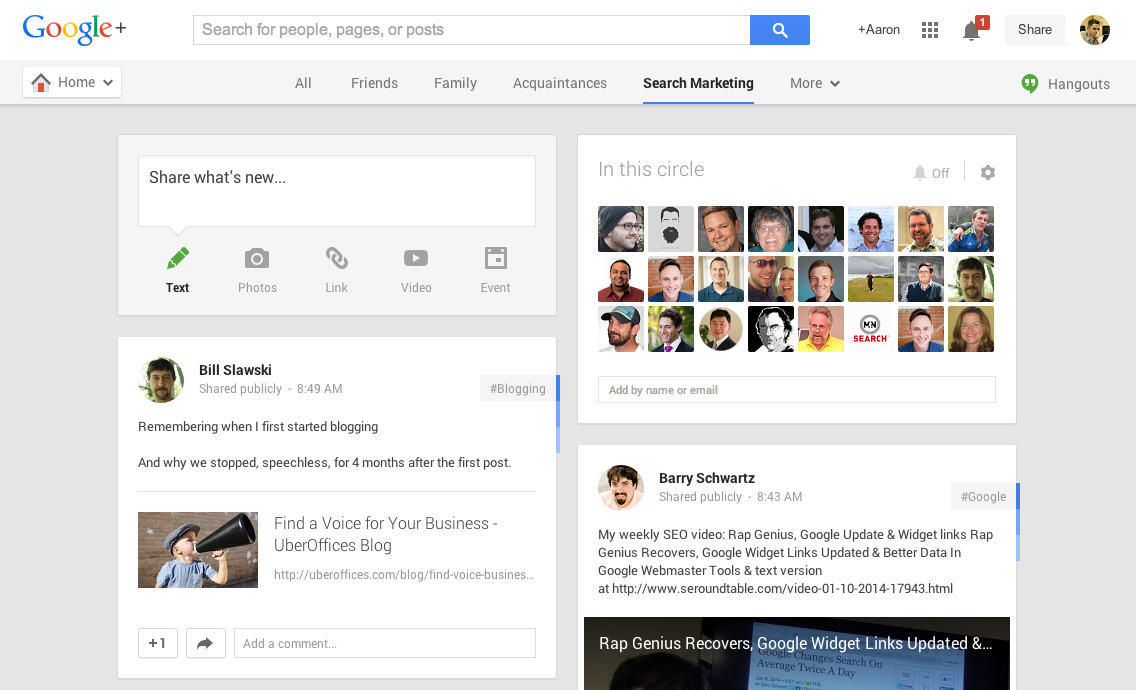3 min read
Honchō Scoops Up Two UK Search Awards!
It’s official, we've added not one, but two shiny trophies to our awards cabinet! We’re over the moon to share that we’ve triumphed at the UK Search...
Last year Google came under scrutiny over privacy concerns. One of them was a large vulnerability issue on Google+ causing millions of user’s data to be at risk of exposure. This led to Google announcing that they will be completely shutting down Google+.
The closure of Google+ is upon us, as all accounts are shutting down in April this year. We take a look at why Google decided to abort its social media platform instead of fixing the security issues.
In all honesty, Google Plus was already dying a slow and painful death when the decision was made to shut it down. It’s no surprise that Google has finally given up on it. This huge security breach has caused them to cut their losses, put the final nail in the coffin and move on.

Google Plus could never compete with Facebook and Twitter, even with Google trying to aggressively integrate other Google services into Google+ at one point, such as YouTube and GMB. It never took off and it never really stood a chance. Why couldn’t Google Plus ever establish itself? Why couldn’t they get users to care about Google Plus even when they tried to integrate it into Google services?
“The one who follows the crowd will usually go no further than the crowd. Those who walk alone are likely to find themselves in places no one has ever been before.”
Why use Google Plus when there are already competitors doing it, and doing it better? Google Plus was never that bad functionality wise. But it just wasn’t that different either. When you already have millions of users on Facebook, why would everyone migrate to a new platform if it does nothing different?
Twitter is the only social media platform that really competes with Facebook and that’s because it’s wildly different and truly innovative. Google Plus very much mimicked Facebook, minus a few features that encourage new connections. Ultimately Google Plus offered no real purpose.
It never really took off and the mass never flocked. So even open-minded tech heads and marketers eventually were left watching tumbleweed blow past. Users may have given it a go, but if none of your friends or customers are on there, then you’re left scratching your head on why you are on there in the first place.

LinkedIn borrows many core features from Facebook, but there is a clear demographic for LinkedIn. Businesses and professionals looking to mould a professional career persona around a social network. The type of content you would output on there would be less personal and more professional. You leave the politics, funny videos and night out pictures for Facebook and Twitter.
Even though LinkedIn’s core framework is based on Facebook’s success, the demographic it captured set a real purpose for its existence. Google Plus, however, never really had a core userbase. It felt like Google Plus never really knew what it wanted to be and suffered a real identity crisis as a result. It’s likely that Google wanted it to be the jack-of-all-trades. But in reality, every pillar of Google Plus was something that everyone else was doing already.
What are your thoughts on the death of Google+? Let us know on Twitter or LinkedIn, or drop us a comment below.

3 min read
It’s official, we've added not one, but two shiny trophies to our awards cabinet! We’re over the moon to share that we’ve triumphed at the UK Search...

5 min read
Understand ecommerce attribution models which attribution models can maximise your marketing efforts and ROI.

3 min read
Explore how social commerce is changing the way we shop online, blending social interactions with digital commerce for a seamless buying experience.